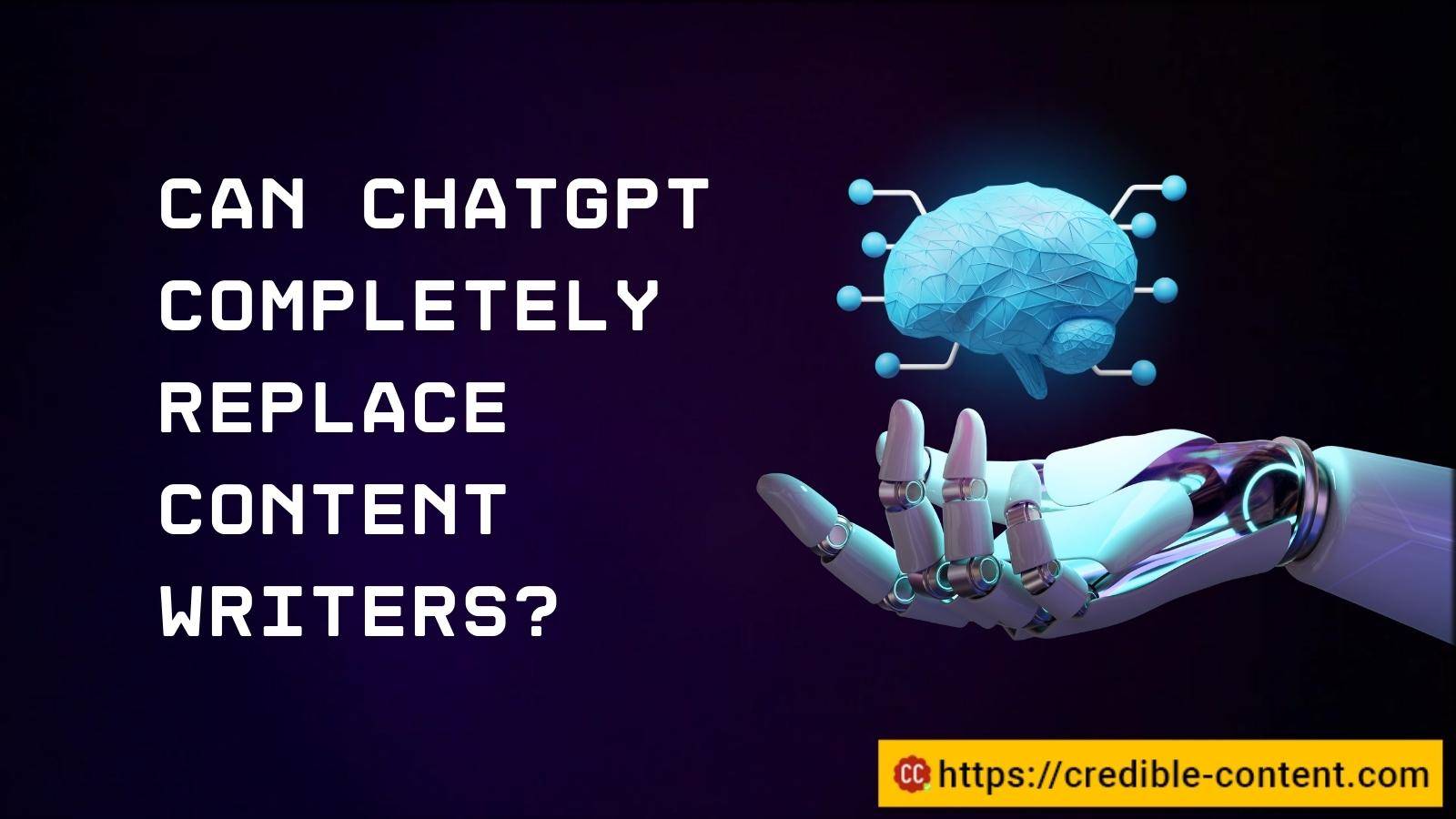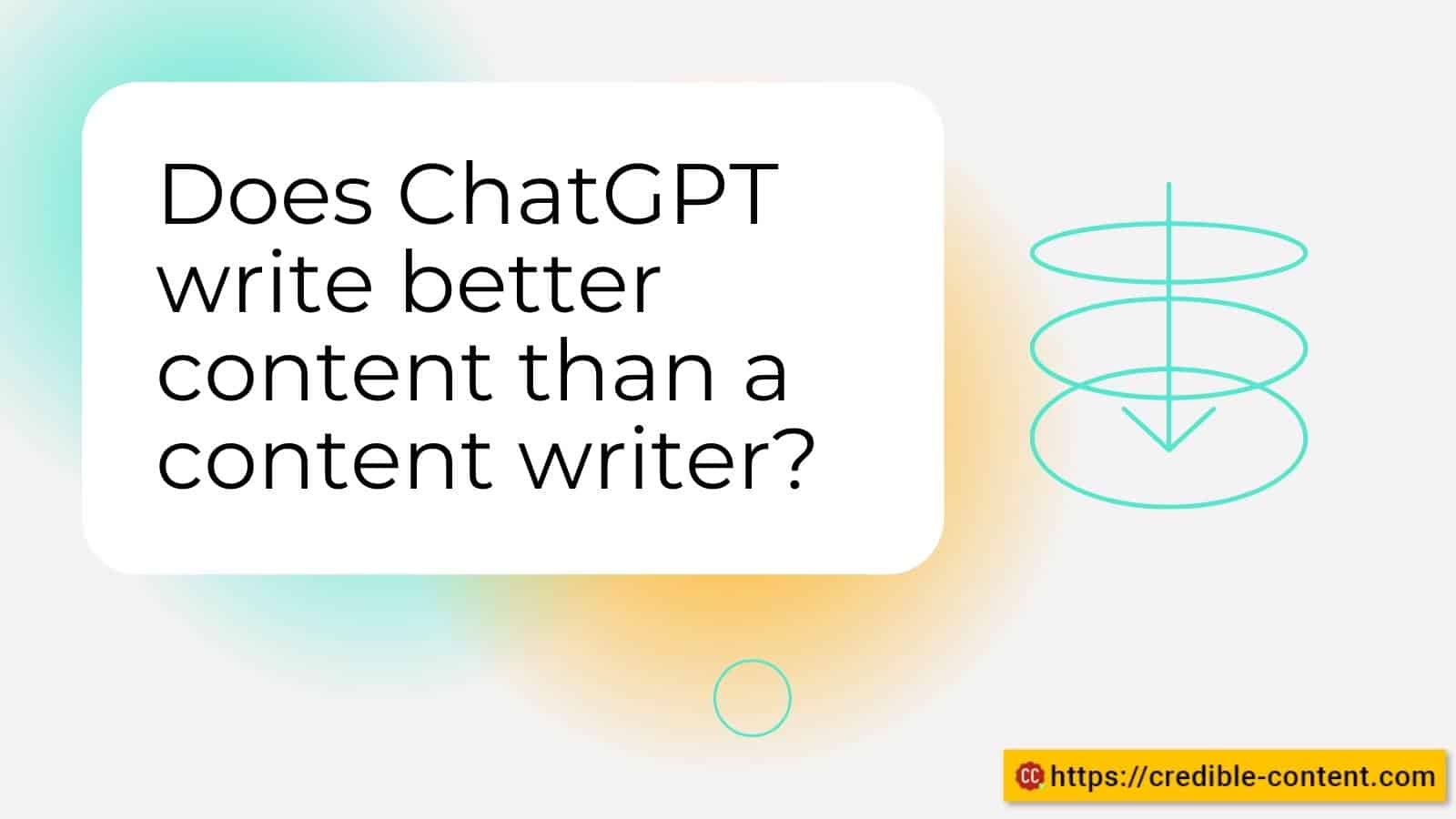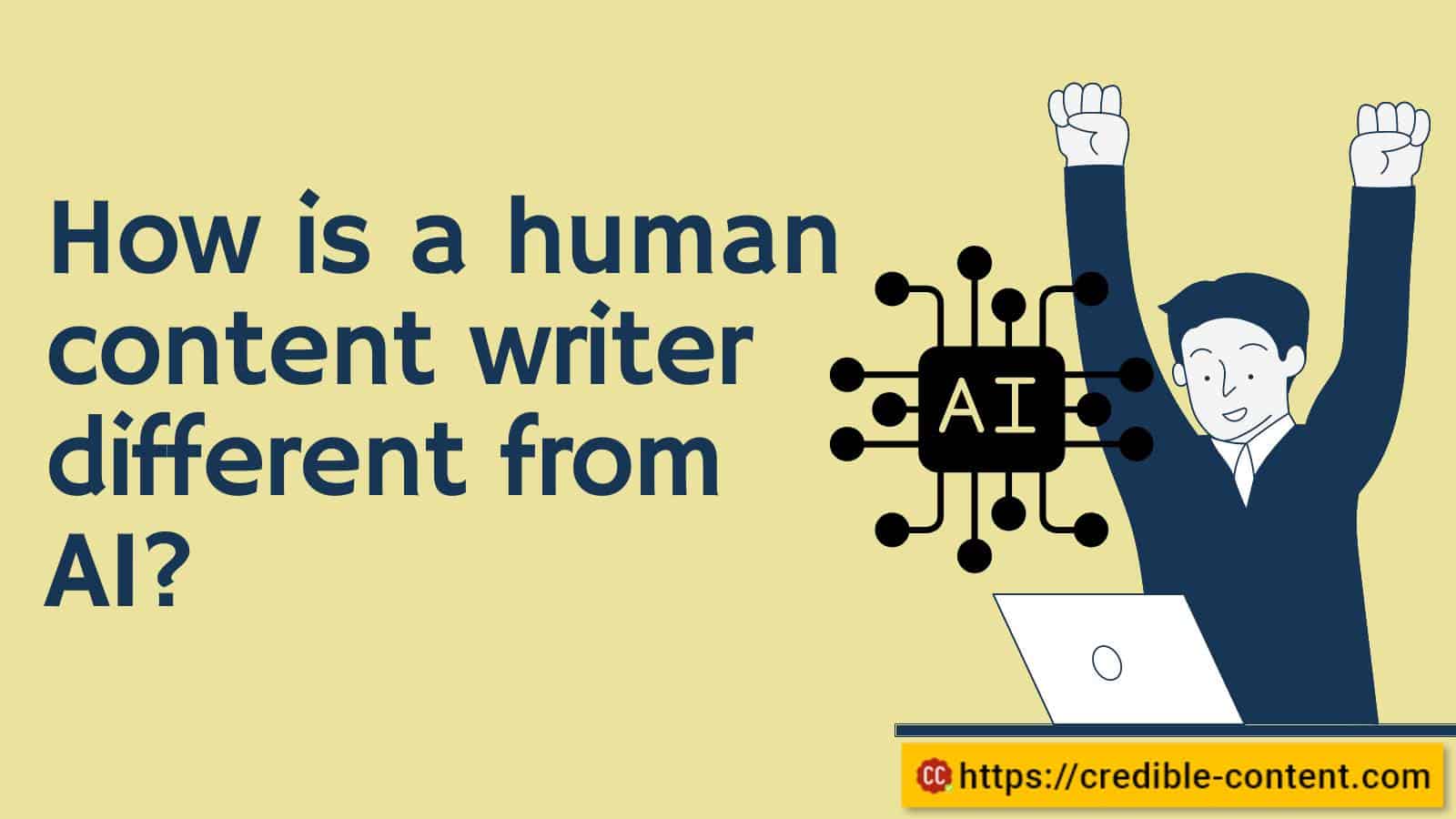
Clients are increasingly asking whether I use ChatGPT to write articles and blog posts. It shows that they are aware that lots of content and copy are being written using ChatGPT.
Of course, the clients who think that ChatGPT is good enough for them, don’t contact me.
Those who contact me despite the fact that they know what ChatGPT can do, fall into two categories:
- They cannot figure out how to use ChatGPT to get content they’re looking for.
- They think that machine-written content cannot equal human written content in terms of quality, personal touch, styling, and relevance.
Some clients don’t care whether I use ChatGPT to write their content or do it myself as long as they get high quality content for their websites and blogs.
Some want me to use online tools like GPTZero that claim to recognize ChatGPT-written content.
Online content writers and copywriters like me have always had to face certain challenges.
Even before the arrival of ChatGPT, there was competition from writers who charge extremely low. They can’t deliver quality content, but those who don’t want to pay for quality content, are not looking for quality content.
The problem is, although most clients know that there is no escaping from publishing high quality content for desired results, they cannot distinguish between quality content and mediocre content unless they have worked with multiple content writers and copywriters to compare.
The same is happening with ChatGPT. Media articles are claiming that tools like ChatGPT may replace millions of jobs in a matter of months.
Washington Post recently published an article ChatGPT took their jobs. Now they walk dogs and fix air-conditioners. The article references many companies, including media agencies, that fired their content writers and copywriters because now they can use ChatGPT to quickly generate content and copy.
The article discusses how ChatGPT is taking over high-paid writing jobs and forcing people to switch carriers. It features the stories of former writers who have lost their jobs to ChatGPT and now working as dog walkers and plumbers.
Does ChatGPT actually write better content?

Better than most content writers? Yes. Better than better content writers? Depends. Better than exceptional content writers? No.
When you ask ChatGPT to write a blog post, there are no spelling and grammar mistakes.
If you’re looking for straightforward content and copy, you can depend on ChatGPT for your regular content needs. The writing is straightforward, but it is a lot better than most content writers.
It even emulates the way humans write. It can write in conversational style. It can use action and power words. It can write compelling headlines. It can divide your content into various sections, subsections and bullet points.
It doesn’t write like an individual.
As is the case with the tools like GPTZero, one can make out if the text has been generated by ChatGPT.
There is nothing wrong in that. As long as the information is being presented in a manner that people can understand, you can write complete blog posts and articles using ChatGPT and your readers may not even realize that.
Before Google launched its own AI tool Bard, which it had to rush because of ChatGPT, the search engine was quite cynical about machine-generated text. Reluctantly, Google may have decided not to penalise text generated by AI tools like ChatGPT and Google’s Bard.
But it is not confirmed. Google is known to penalise machine-generated content, and this is one of the biggest reasons why many clients are shying away from solely using ChatGPT to generate content.
Also, ChatGPT is biased. It’s opinions, if at all it has some, are based on the biased data being fed into the system by its programmers. Therefore, if you want to write something that goes against what has been fed into ChatGPT, you won’t be able to write it.
Coming back to the quality of content written by ChatGPT.
It doesn’t write like “me”, but it writes fairly well. The sort of content I have seen content writers writing, they can no way match ChatGPT.
Fortunately for content writers like me, content isn’t just about information, because, every average content writer can compile information.
Content is about engagement. Engagement comes from the way you write.
Every writer has his or her own unique style. ChatGPT cannot emulate Charles Dickens or Salman Rushdie, or a copywriter like David Ogilvy.
It can write like a teacher. It can write like a school student or a college student. It can write like a journalist. But it struggles when it comes to writing like a copywriter.
Whether it can establish an emotional connection, depends on what you call emotional connection.
My clients hire me because they love my writing style, and they want the same type of writing for their websites and blogs.
As a content writer, if they think that ChatGPT can replace me, then perhaps, I’m not writing the sort of content I’m supposed to be writing.
Does ChatGPT worry me?
If I’m lazy, yes, it worries me.
If I provide something unique that cannot be provided by ChatGPT, then I’m not worried.
How is a human content writer different from ChatGPT?

Remember that ChatGPT cannot give you what it doesn’t have.
For example, if you want ChatGPT to write something about what’s happening in 2023, it tells you that it can give you information based on what it knows up till 2021.
Although it can present information, it cannot form opinions.
It cannot be creative. It cannot be original. It can only deal with information and data that it has.
Again, although it can dig up information among terabytes of data, it cannot do in-depth research. It cannot draw inferences. It cannot understand the context for different pieces of information.
It cannot adapt to different writing styles. If you want to write content for different target audiences, it is difficult to achieve that through ChatGPT.
Another thing that I have noticed in ChatGPT is that after a while, it keeps repeating the same phrases, expressions, and words. A human content writer doesn’t do that.
How I’m using ChatGPT to write content faster for my clients

Do I use ChatGPT?
Yes, I do.
I use ChatGPT to quickly create outlines.
Here is an example:
I needed to write a blog post titled “10 ways the latest GPS technologies are helping logistics companies”.
Up till recently I needed to spend lots of time gathering all the important points. Now, the basic information is provided to me by ChatGPT.
For example, it creates a bulleted list of 10 different ways the GPS technologies are being used by logistic companies.
I don’t need to accept all the suggestions. In fact, if I don’t like some of the suggestions in the outline, I can ask ChatGPT to generate 10 more ways the GPS technologies are helping logistics companies.
I use ChatGPT as a quick text generator. I create an outline. Within a few minutes I have an idea of what I’m going to write about. I can generate all the points. After that, I need to expand upon those points.
Then I write the content in my own words.
I also use ChatGPT to extract important points from links.
Take for example, I want to know the main takeaway is from the above-mentioned Washington Post article.
I can use the following prompt on ChatGPT: “Create a 100-word summary of the article on this link [mention the link]” and it quickly creates a summary for me and then I can decide whether I want to read the article further or not.
As mentioned above, I use ChatGPT as a content writer to create an outline and even to create a rough draft. So, 50% of my job is done within five minutes.
With all the right information available to me, I start rewriting the stuff in my own language, with my own discretion, in my own style.
I shorten the sentences. I simplify the language (which, ChatGPT often seems unable to do). I rearrange the information according to the required flow. I research and add new information. I make sure that the information is easily readable to the target audience.
I let ChatGPT do the grunt work. It gives me ample time to use my creativity and writing experience to write better content.
The same applies to copywriting. It can quicky generate copy, but the real impact can only be made by a human copywriter.
